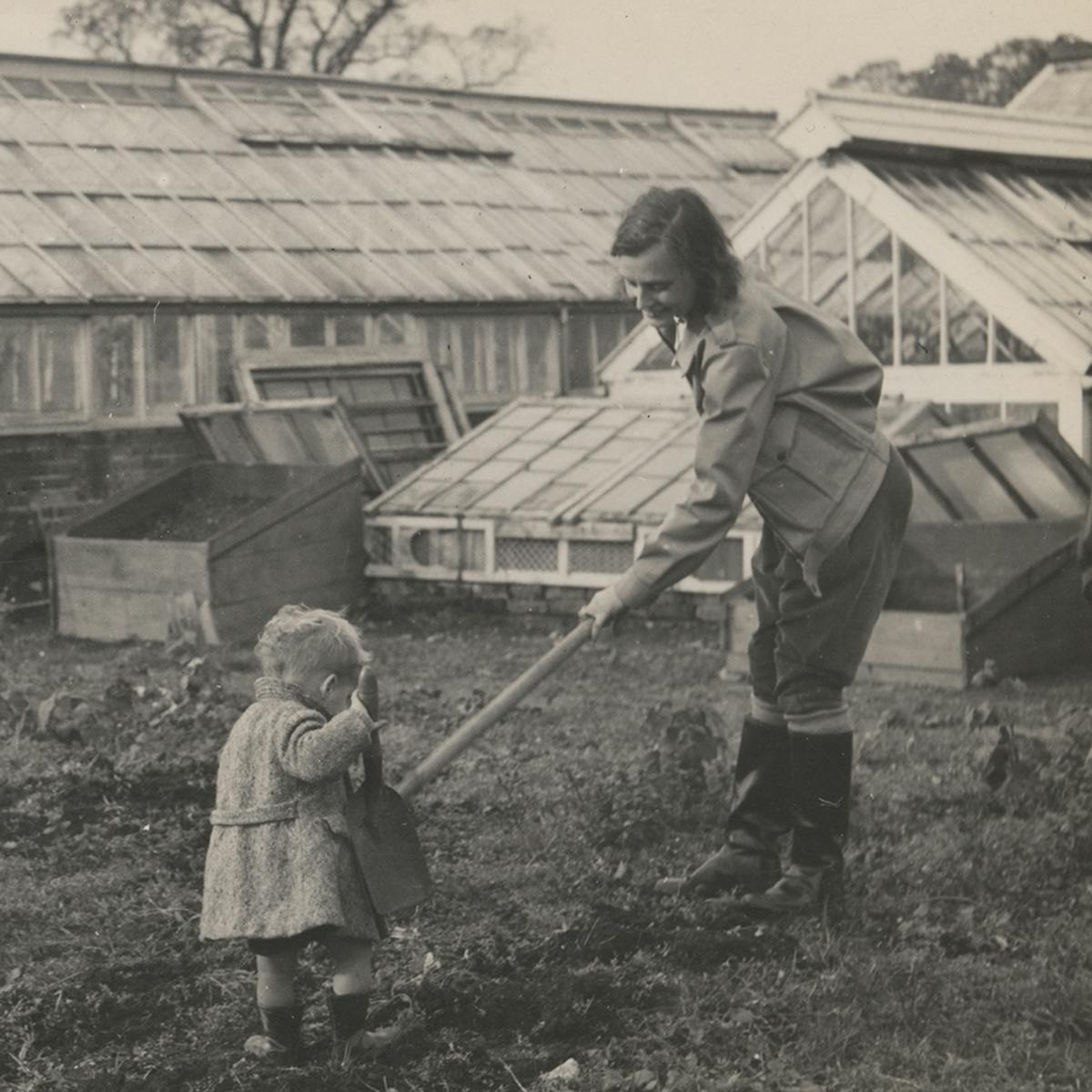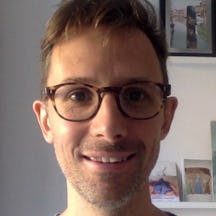The archives of a radical health centre inspired James Wilkes to write short stories, including ‘The Homestead’, a new fiction created especially for Wellcome Collection.
How the Peckham Experiment inspired my fiction
Words by James Wilkes
- Story
The Pioneer Health Centre, also known as the Peckham Experiment, was a health and social centre established in the 1930s in Peckham, south London, by doctors Innes Hope Pearse and George Scott Williamson. Their aim was to study human health, rather than disease, and the centre’s members were to be the first subjects of a new science of living, which they called ‘ethology’.
The centre closed its doors for good in 1950, but its archives contain a mass of unruly material, ranging from photographs and amateur films to meeting minutes, pamphlets, and drafts of lectures and books. Incongruous ideas are held together in these boxes and folders: anarchist principles rub shoulders with reactionary gender politics, while a commitment to the biological sits alongside esoteric spiritual beliefs.
A different kind of writing
I find archives like this irresistible – perhaps because, as the ruins of a future that never was, they make it possible to reimagine the present. Although I usually write poetry and performance scores, I felt that this material was calling for a different kind of writing, one that could hold turbulent ideas in loose constellations in the same way as the archive. That’s why I turned to writing short stories, many of which have ended up being speculative fictions: ways of using the Peckham archive to imagine new relationships between individuals, communities and environments, new ways of living together.
One of the first pieces I wrote wove together a number of details that struck me forcefully in my first months in the archive: mentions of the strange life cycle of axolotls; photos of families having medical check-ups; the weird and arcane metaphors – men as ‘storage battery systems’, for example, and women as ‘petrol systems’ – through which the doctors imagined gendered roles within the family dynamic.
Simultaneously, the archive suggested a form to hold these elements together. I came across several typescripts in which additions and changes had been made by cutting and fixing together different sheets with pins, staples and brass fasteners. This discovery pushed me towards collage, at the heart of which is the selection, cutting and recombining of found material, producing a whole whose energy derives from the juxtaposition of its many parts.
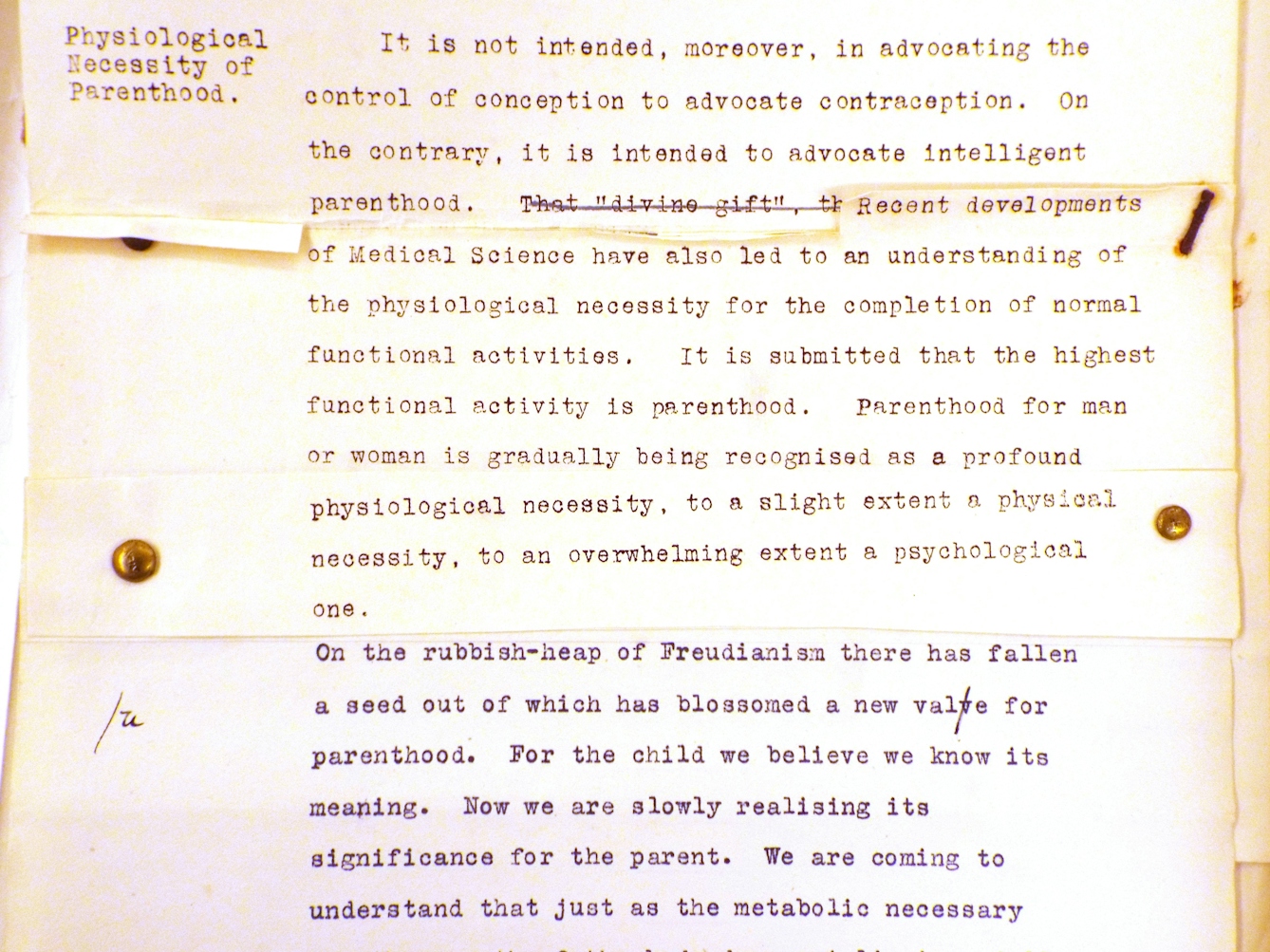
“I came across several typescripts in which additions and changes had been made by cutting and fixing together different sheets with pins, staples and brass fasteners.”
Coming into focus
Other forms took more time to evolve, and only came into focus when I’d been able to cross an experience in the archive with an experience in the world beyond it. I went to Glasgow to meet some of the trustees of the Pioneer Health Foundation, the body that carries forward the Peckham Experiment’s legacy.
As I chatted to them, I gave my toddler my notebook to scribble in. Looking at his doodles later, I realised that one of the circular lines he had drawn continually made enclosures and then split them, in ever-finer degrees. I used this drawing to invent a way of writing about the photos of children playing, skating and biking at the centre; a way of excavating and then re-excavating the details of these images until they collapsed into their own grain.
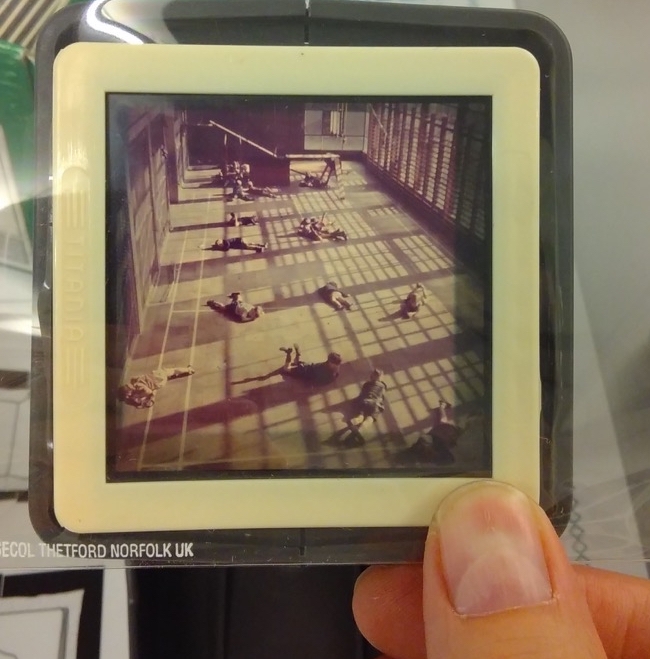
“I find archives like this irresistible – perhaps because, as the ruins of a future that never was, they make it possible to reimagine the present.”
Characters in search of a play
Another significant experience that came late in the day was a visit to the Pioneer Health Centre itself. The building was designed in 1935 by the engineer Owen Williams in concrete and glass, with a huge swimming pool in the middle. In the 1990s it was converted into flats, but one of the trustees put me in touch with a resident, who offered to show me around.
I was intrigued by the odds and ends I found lying in passageways or on the flat roof: yellow builders’ buckets, a trowel on a length of galvanised wire, a swimming float, a space heater on wheels. These suddenly swerved into contact with some archival photos I’d been mulling over, showing members of the drama group relaxing in the centre’s cafeteria. Now I had a cast of characters, and I had a list of props: a short play seemed inevitable.
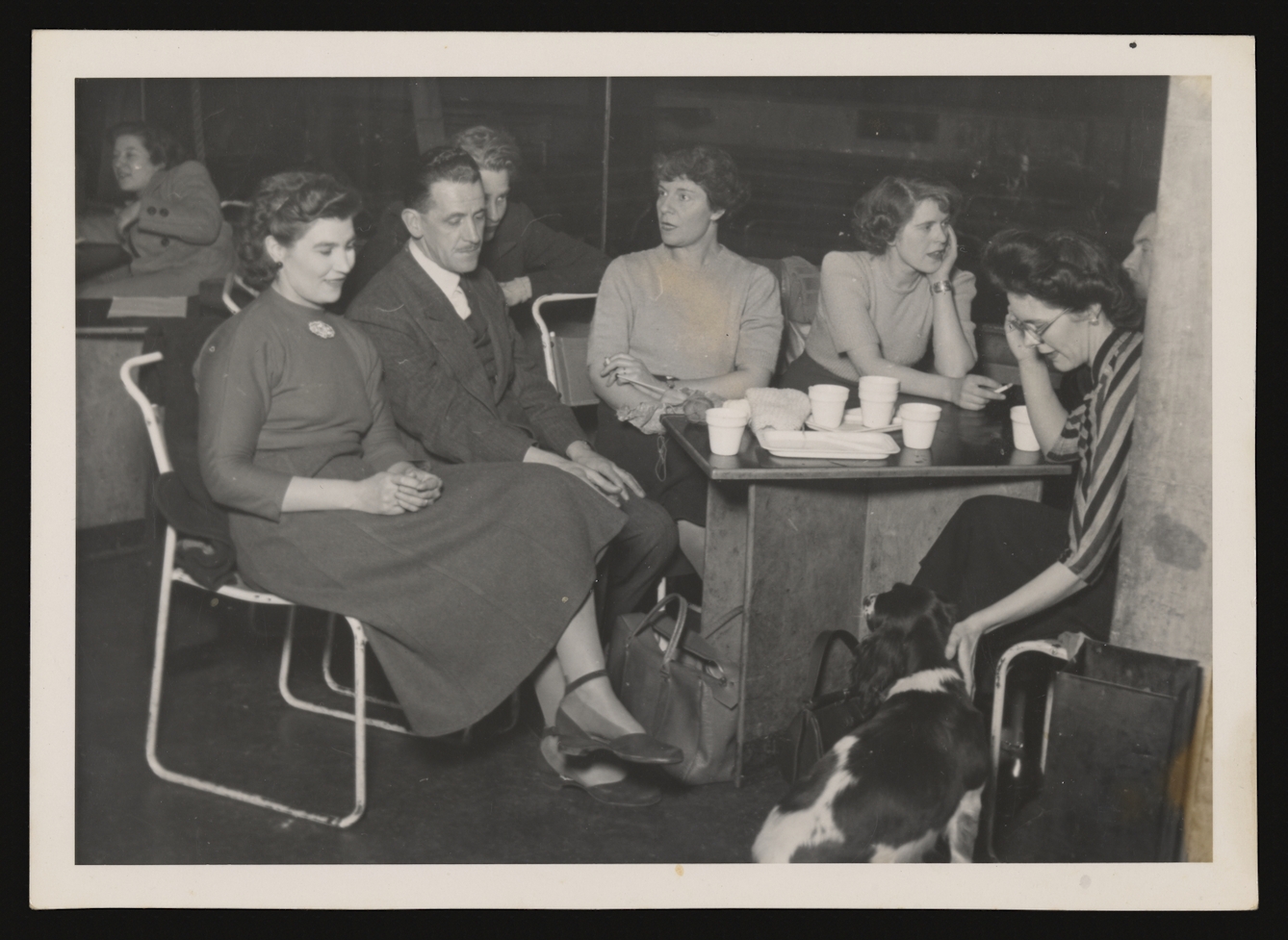
“Now I had a cast of characters, and I had a list of props: a short play seemed inevitable.”
A micro science fiction
The story that follows this essay takes the form of imaginary captions, written to accompany archival photographs of the Pioneer Health Centre’s nursery and wartime farm. The possibility of writing a story by arranging and captioning a series of black-and-white photos reminded me of ‘La Jetée’, the celebrated ‘photo-roman’ by filmmaker Chris Marker, which creates its time-travelling science fiction from still images and a voiceover, moving between past and future without the aid of any special effects.
With this in mind, I set out to write a micro sci-fi narrative of my own, in which a woman caught up in a war narrates her life story across the space of nine images. It’s called ‘The Homestead’.
‘The Homestead’
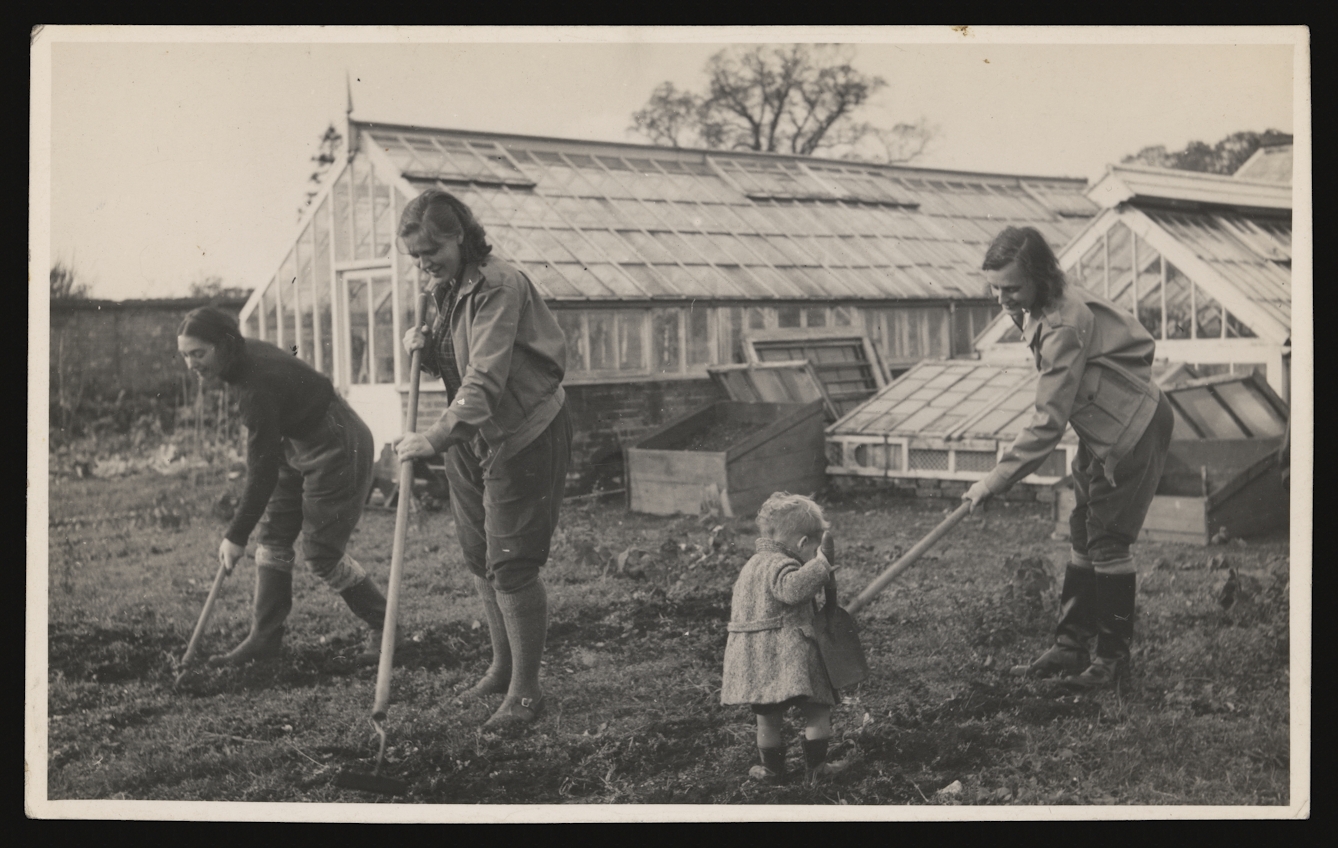
In Orientation someone asked: why not all families? Because, they told us, only in the young family is the pattern of living not yet fulfilled. Only the young family is capable of making life anew. Carefully I wrote this down. Two days later they sealed the doors.
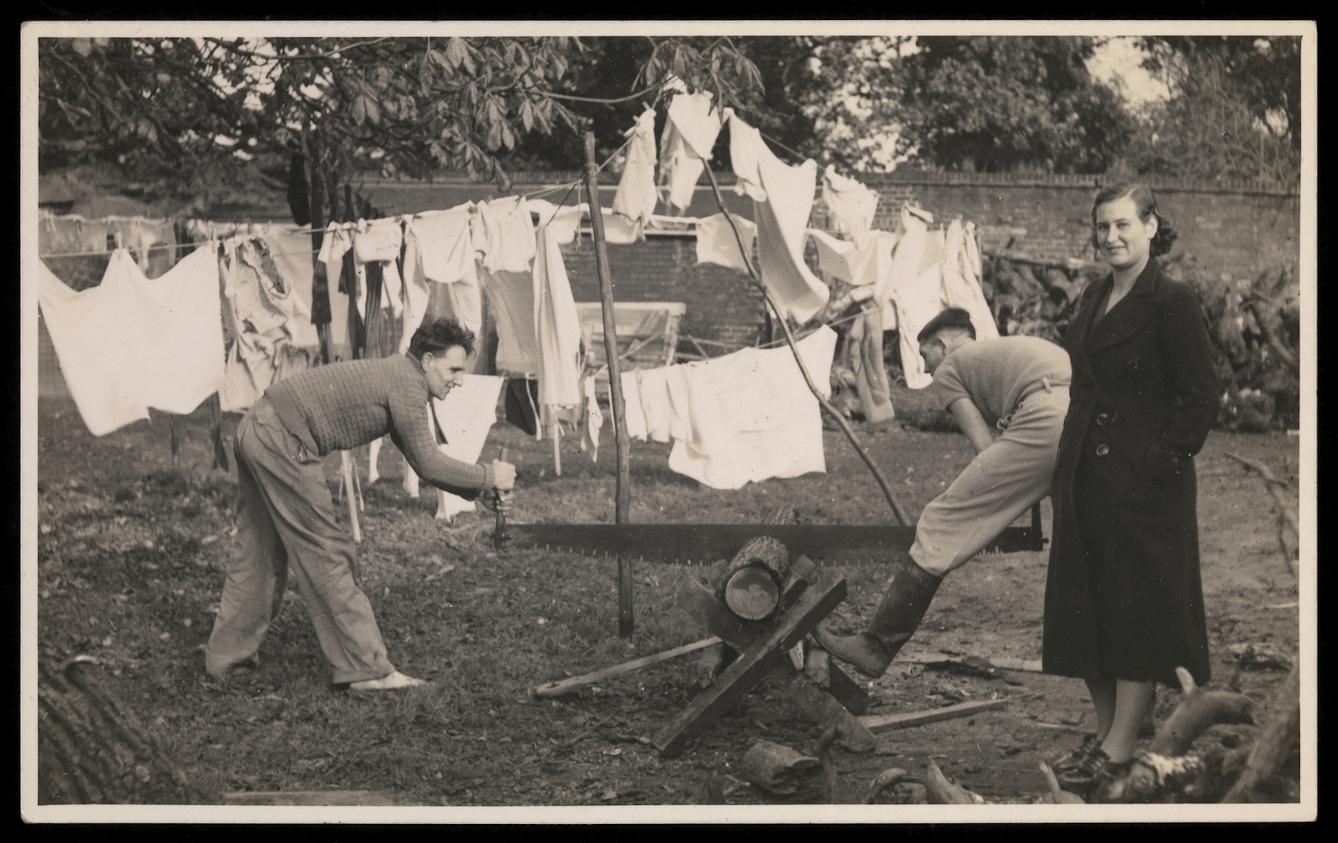
The fighting had polluted them all and they would have poisoned us, if they ever could have reached us. Still, we missed them, in a way. In my dreams they would appear casually, dressed to carry out their strange rituals.
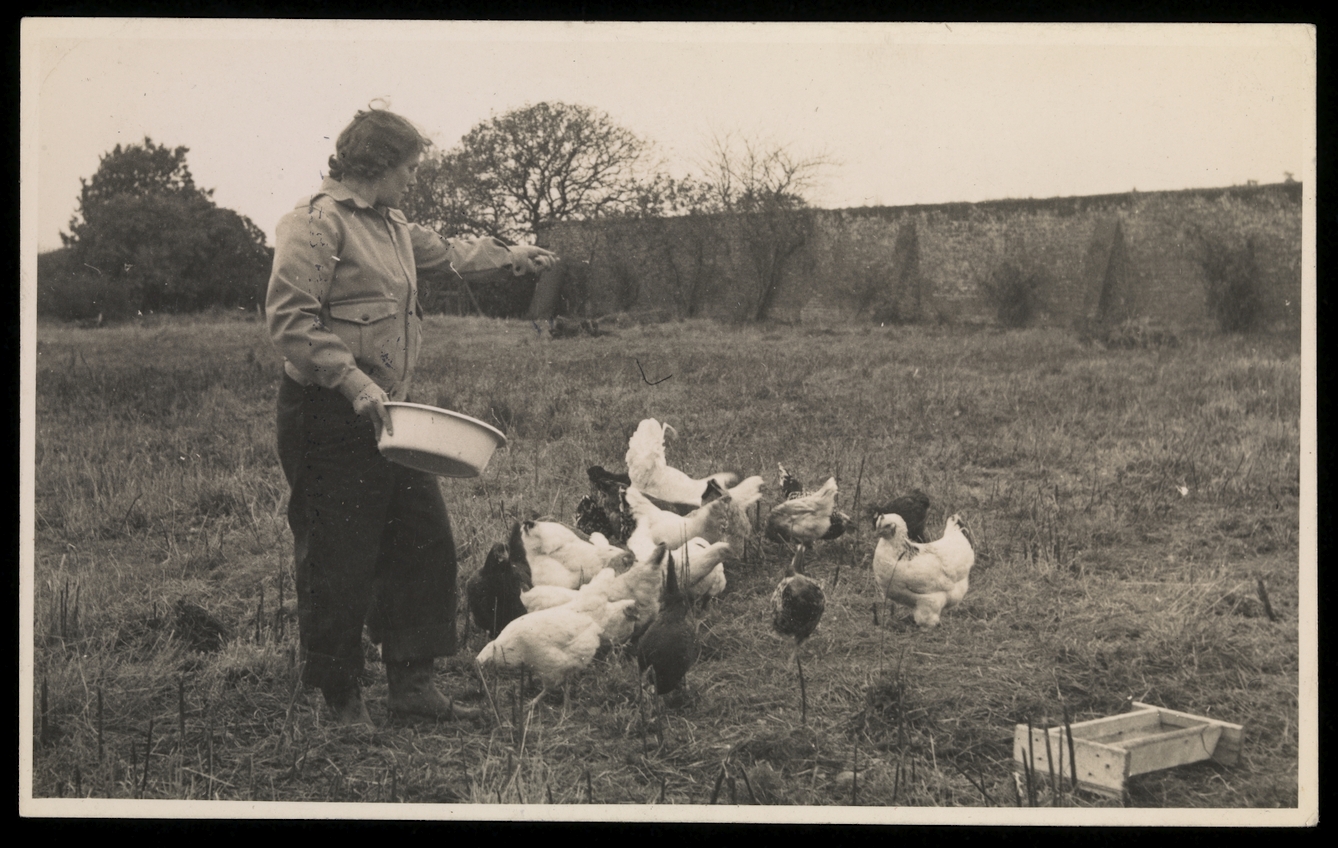
At first we were a family of four. Then sickness took Simone, who I loved, and Petra, who was only twenty. When Conrad turned fourteen he said he had to leave. I knew this was so. For the last time I held his wide shoulders, the featherweight boy buried inside.
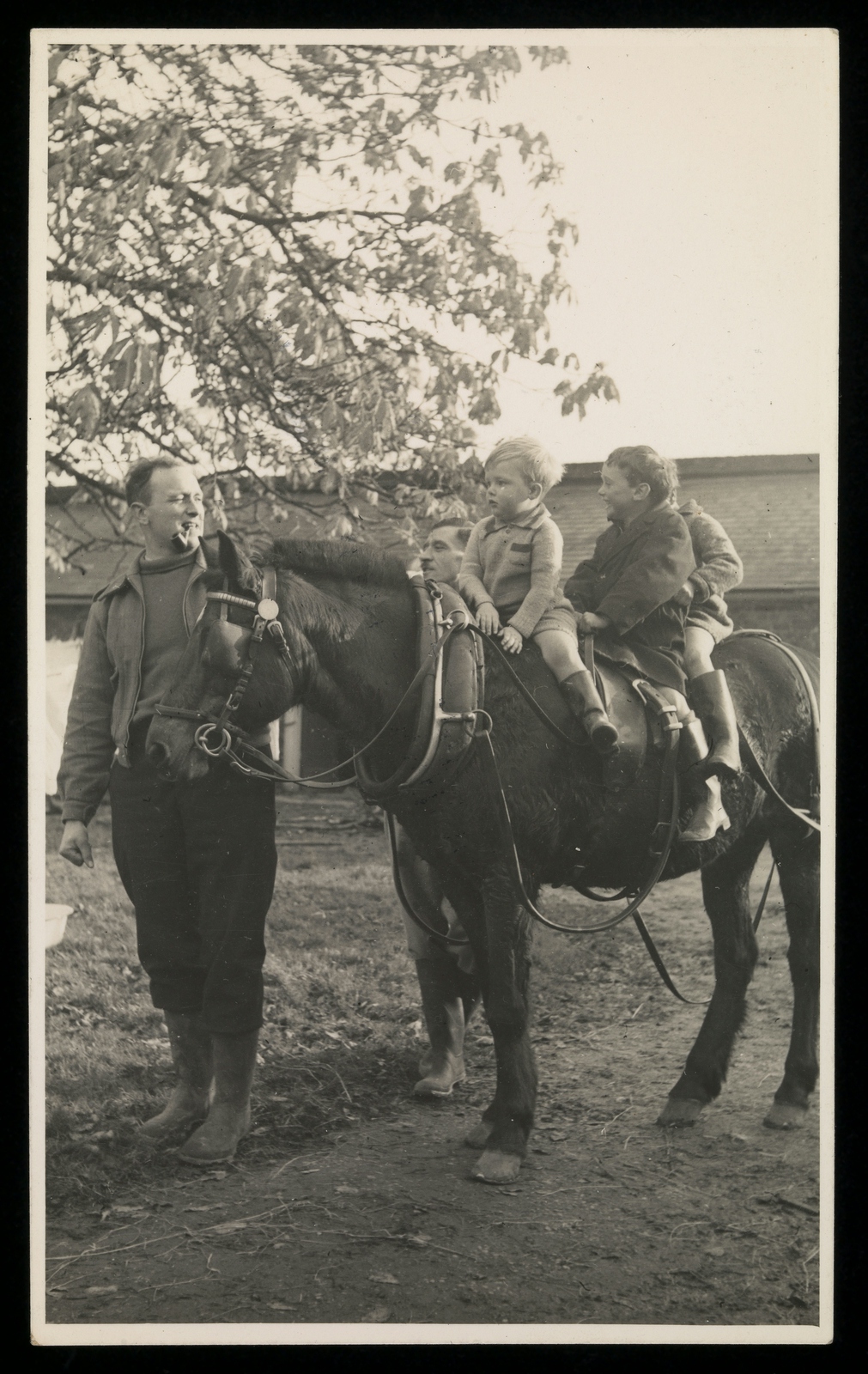
It seemed things were getting worse. I wondered what would happen if I took in the horse, sent the children back to the waiting men instead. It nuzzled my palm, breathed on my neck. Reluctantly I lifted the children down, turned it around and slapped its withers.
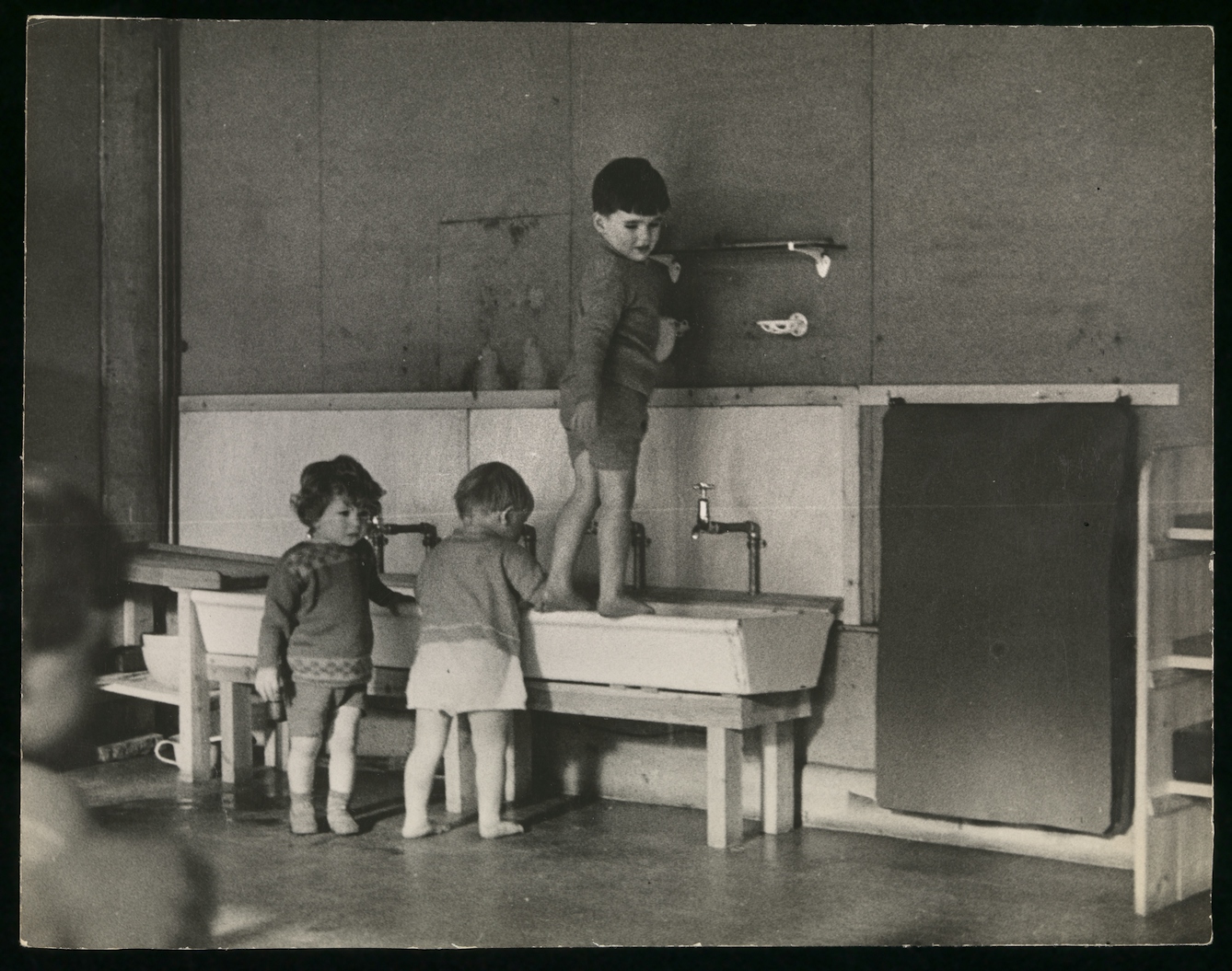
I took more shifts in the nursery because of my arthritis. Just to be out of the cold at first, but the work grew on me. The children had been cut back hard, but they were alive at the root. Given the right soil, they put forth tender shoots.
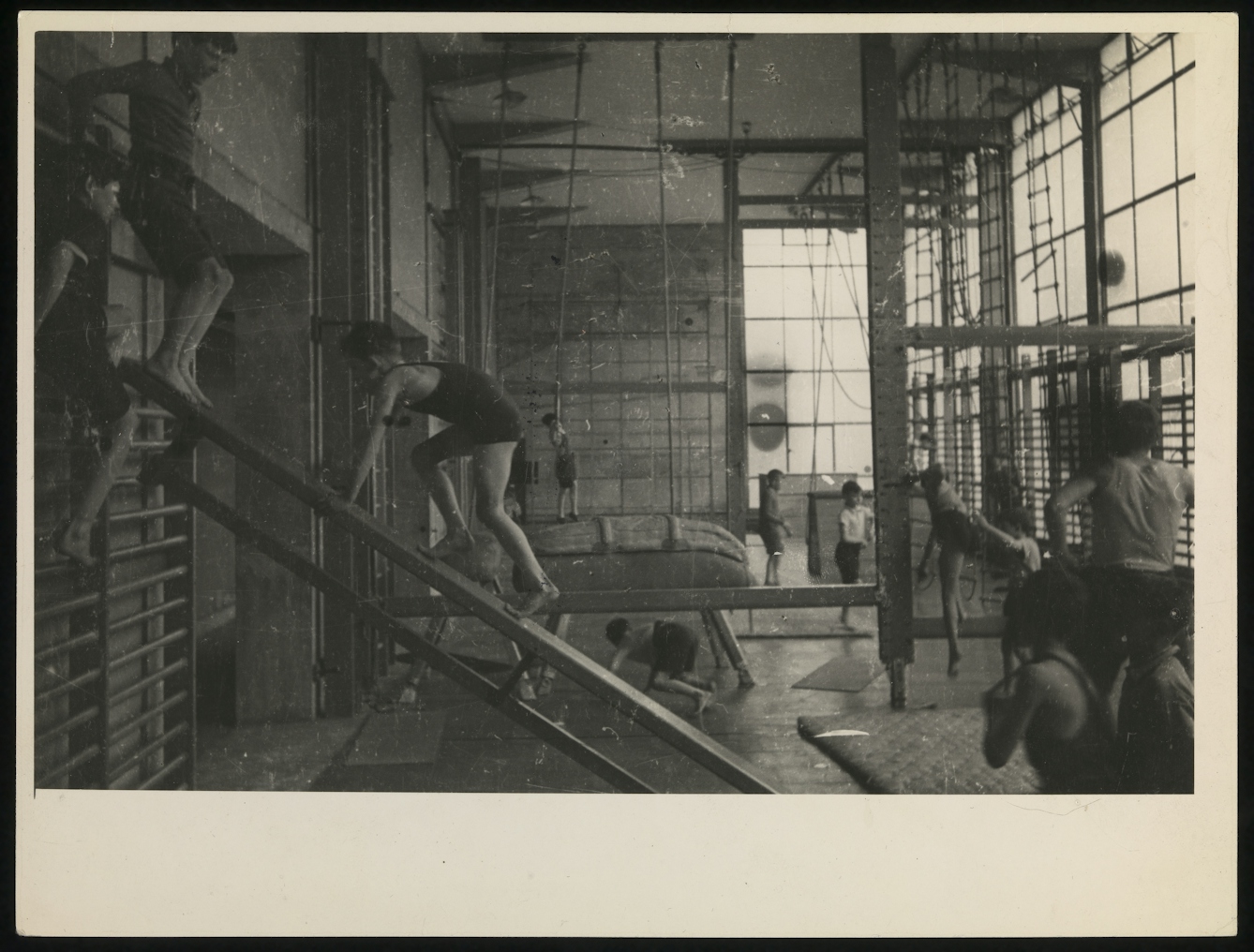
Reports from outside were garbled, contradictory. We didn’t know what training to offer. We took a disused barn and filled it with fantasies. ‘Outside’ was a game that never grew stale. As adolescence approached, the children played it compulsively. It was too painful to watch them for long.
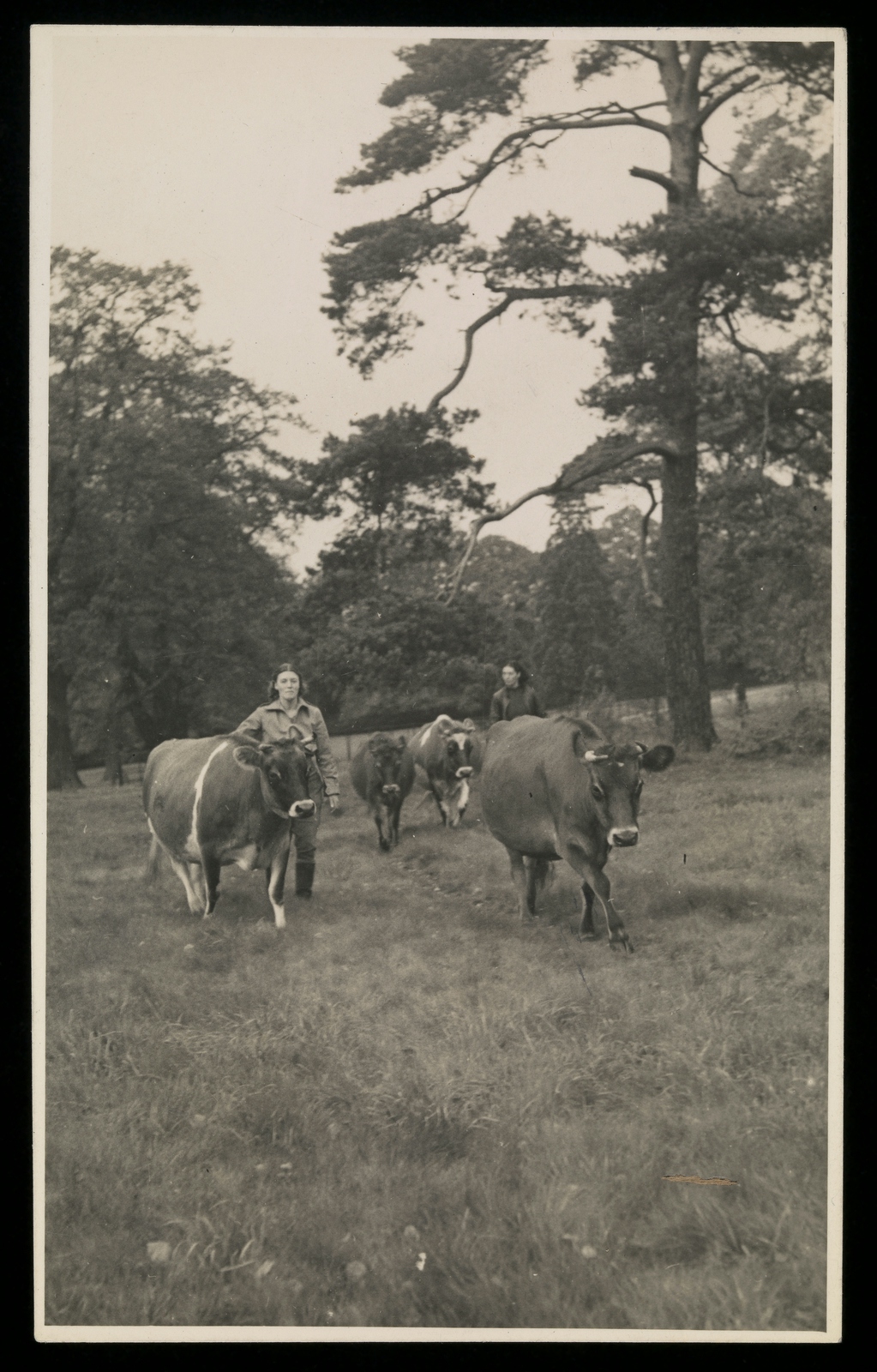
It was Lupin who discovered it was over. She pushed the doors with her head and they swung lazily open. All that grass: she and her sisters couldn’t believe their luck. Too dazed to herd them, we just wandered in and out again, calling to each other, stunned by birdsong.
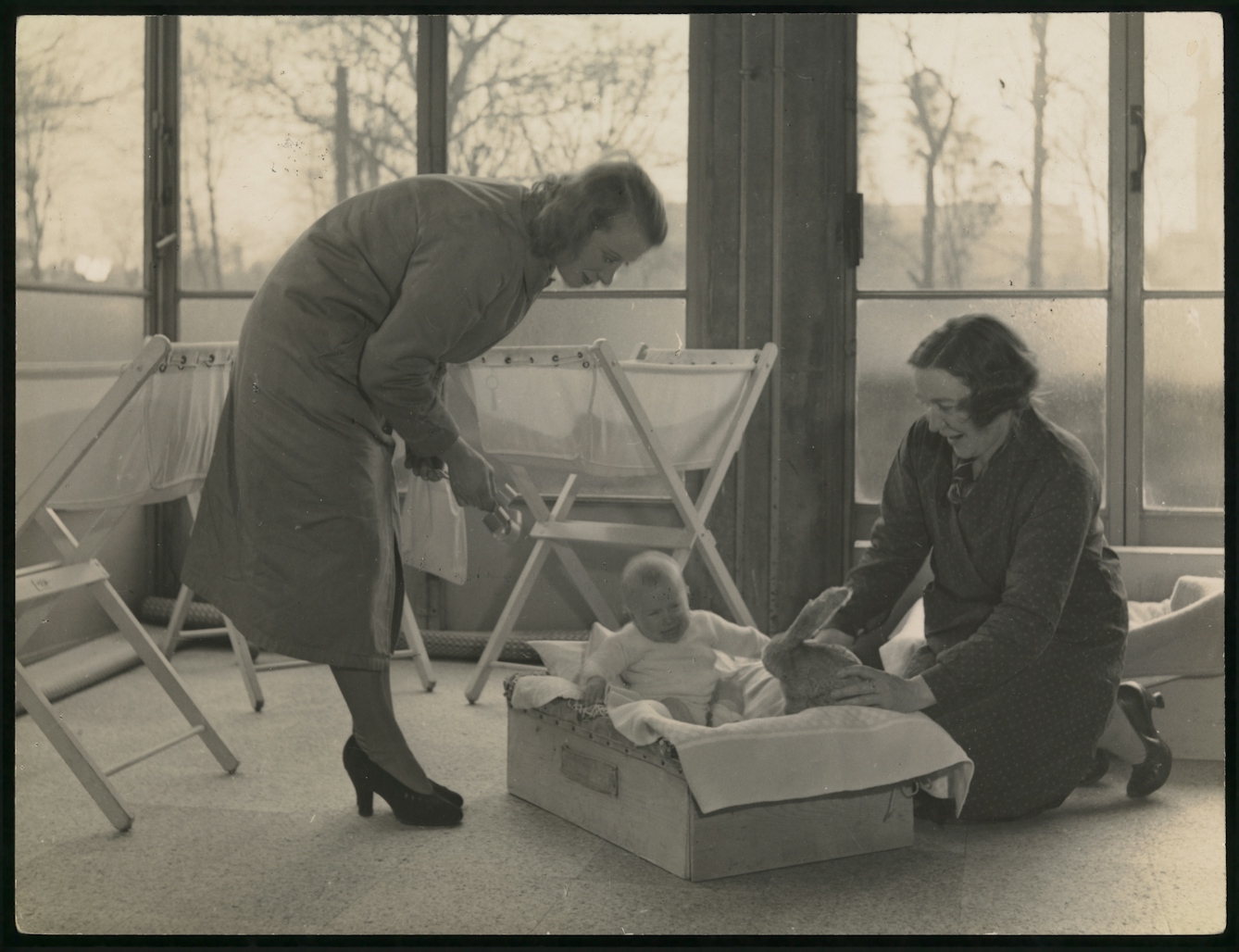
When we discovered the true nature of the doors many got heartsick, and some never recovered. I myself saw this. Most of us left chose to remain. Our visitors called us guardians, cultivators, heralds. There was something unreal about the clothes they wore, the turns of phrase they used.
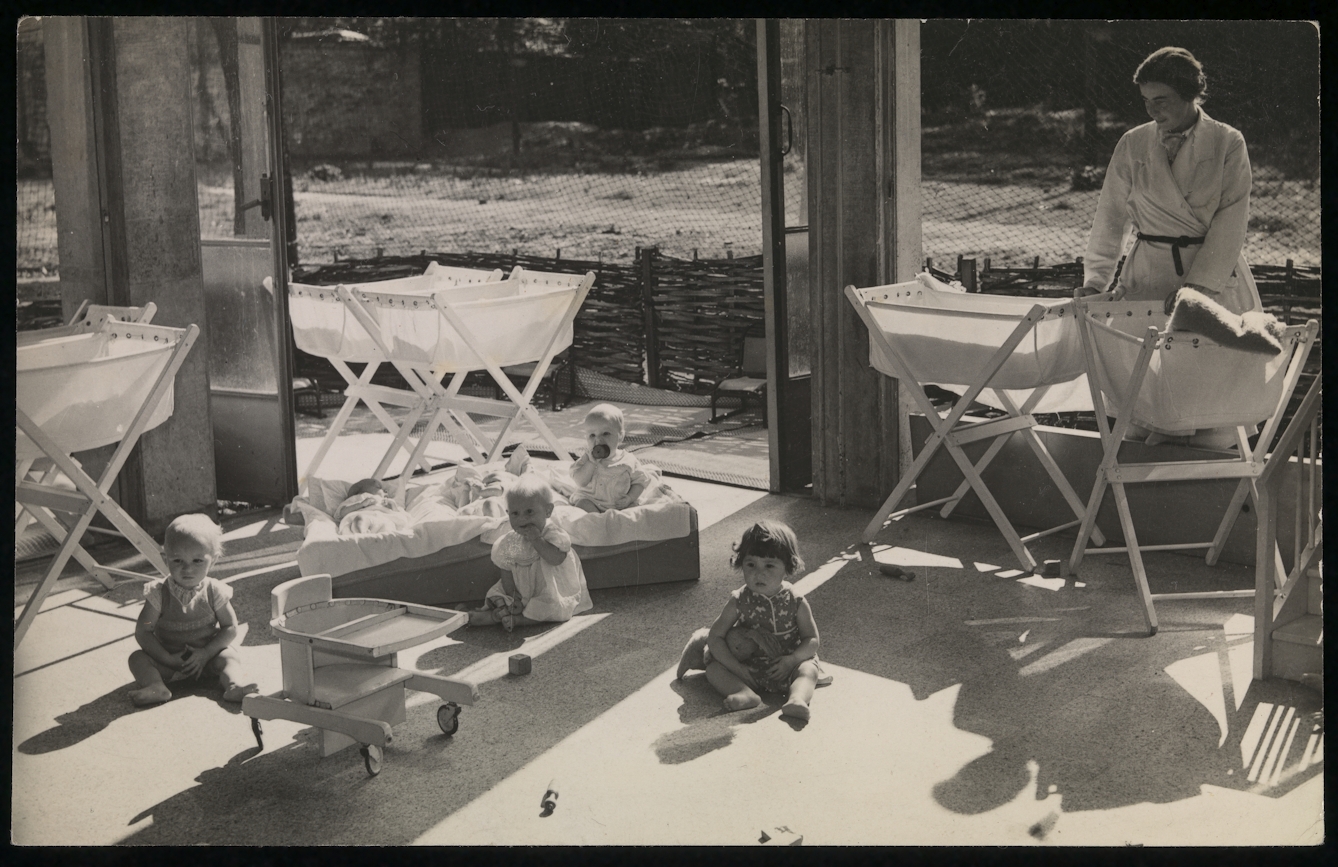
It feels long ago. But when I drop by my old workplace I see the patterns we established, like field marks in grass. We were taught that the individual can only grow older, the family only younger. But we taught ourselves to weave them, stake and withy. And with our lives.
If you enjoyed this article, and you’re in London, you might also like ‘Living with Buildings’, at Wellcome Collection from 4 October 2018 until 3 March 2019.
About the author
James Wilkes
James is a writer interested in the intersections of literature, 20th-century history and the cognitive sciences. He is currently writing a collection of short stories that circle around the archives of the Peckham Experiment, for which he was awarded a Wellcome Research Bursary.
